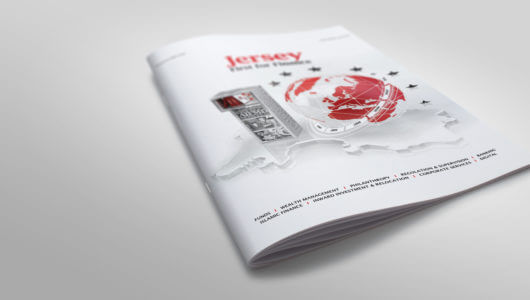The changes were designed to phase out outdated fund products and improve its flexibility within an innovative funds regime.
In upgrading its funds offering, Jersey focused on private funds, targeting professional and institutional investors rather than the retail market. In response to demand from fund managers and investors, JPFs provide a competitive offering, reflecting the institutional nature of investors in Jersey funds. The lighter regulatory treatment of the JPF was made possible through the reliance placed on Jersey-regulated fund administrators, which must carry out appropriate due diligence in relation to the fund.
Following its introduction, the JPF regime was quickly seized upon by existing and new clients as an effective, streamlined and proportionate product for privately offered alternative investment funds. The speed and ease with which these new launches were achieved – all within 48 hours of applying to the Jersey Financial Services Commission (JFSC) – underlined their effectiveness.
Manager-led fund products
Under the Alternative Investment Fund Manager Directive (AIFMD), the regulatory focus changed from regulation of the fund, to regulation of the fund manager. However, this also introduced the possible risk of ‘double regulation’, where a fund and its manager are both required to comply with regulatory obligations, adding further administrative costs, possible delays and increased complexity. As a non-EEA jurisdiction, Jersey is not as affected by this as Luxembourg or Ireland but, given Jersey’s strong commercial links to EU member states, it is important to not only offer AIFMD-compliant regulatory regimes but also fund products that make the best out of that regime.
In the wake of the implementation of the AIFMD, a number of European domiciles launched new ‘manager-led’ fund structures in order to attract professional and institutional investors in specialist fund classes such as real estate and private equity. These new structures were designed to offer a more flexible alternative to the rigid regime that was imposed upon Europe’s alternatives fund market. These ‘manager-led’ vehicles were aimed at providing a streamlined regulatory environment for a class of professional investor deemed to be sophisticated enough to carry out their own due diligence.
As is so often the case, Ireland became the early mover, launching the Irish Collective Asset-management Vehicle (ICAV) in early 2016. Guernsey then came out with its Manager Led Product (MLP) in March 2017, followed by Malta and the Notified Alternative Investment Funds (NAIF) and Luxembourg and its Reserved Alternative Investment Fund (RAIF), which was passed into local law in July 2017.
The introduction of these ‘manager-led’ regimes were seen as a defining moment for the funds industry in reducing costs both at the fund formation stage and throughout the life of the fund. At the same time, alignment with the EU shifted the focus towards regulating the managers of investments and not the investments themselves. The likes of the British Virgin Islands (BVI) and the Cayman Islands may feel most threatened by the new manager-led fund structures from European domiciles and the prospect of more re-domiciliation of funds from these jurisdictions may become more common.
Meanwhile, Jersey has taken its own steps to introduce the Jersey Registered Alternative Investment Fund (JRAIF), which is expected to provide investors with an impressive new vehicle, which can prosper even further once the AIFMD passport is granted.
As a manager-led product, the JRAIF is aimed at professional and sophisticated investors and will be supervised directly by the alternative investment fund manager, who in turn is authorised and supervised by the JFSC. With the JRAIF – unlike in other fund structures – the alternative fund manager is responsible for ensuring the JRAIF is AIFMD compliant. This also means that no JFSC approval, either prior to launching the fund or thereafter, will be required. The JRAIF will not be required to adhere to the code of practice for certified funds.
It is thought that the JRAIF provides a pragmatic compromise between appropriate regulatory supervision of financial vehicles and providing relief to investors, who are often stuck with the costs of dual regulation and compliance. After all, a fund is essentially a pooling vehicle and if that vehicle has been set up and is managed by an appropriately regulated and supervised fund manager, there is little need to add additional regulatory requirements to the fund vehicle itself. Furthermore, it should not be forgotten that not only the fund manager is regulated but the fund’s and fund managers’ bankers, custodians and administrators are also regulated entities.
Conclusion
Jersey’s continued improvements in infrastructure and supportive regulations, as well as reductions in bureaucracy across its funds offering, is likely to maintain – if not improve –its domiciliation share in an increasingly competitive global marketplace. As the Jersey funds industry evolves, the governance and in-house administrative activities carried out in Jersey is likely to increase.
The best operating centres for funds will balance high-quality regulation and infrastructure with the potential for tax-efficient structuring. With investors now in the driving seat, international financial centres must give managers greater flexibility to match transparency and governance to investor profiles.
As a jurisdiction, Jersey recognises the need to continually enhance its funds environment in an evolving regulatory landscape. As well as making Jersey’s regime clearer, simpler and more streamlined, it also demonstrates that the jurisdiction is committed to bringing innovative products, such as the JRAIF, to the market.
The Jersey government’s determination to encourage high quality business to the Island and the support offered by the sophisticated and comprehensive infrastructure of laws and regulations, combine to promote investor confidence. Jersey’s competitiveness internationally provides it with credibility and a competitive edge in a world where a jurisdiction’s quality has assumed far greater importance.
Jason Bingham is Head of Real Estate at SANNE.
Jason is responsible for the strategic governance of SANNE’s Real Estate division, its services and markets across the jurisdictions in which it operates.
He has more than 17 years’ experience in the financial services industry administering a wide variety of real estate structures including limited partnerships, corporate structures, unit trusts and collective investment schemes. Jason joined SANNE in 2012 from State Street (formerly MIFA) where he worked in both the Jersey and London offices.
Jason has an MSc in Real Estate and is a qualified chartered secretary.


